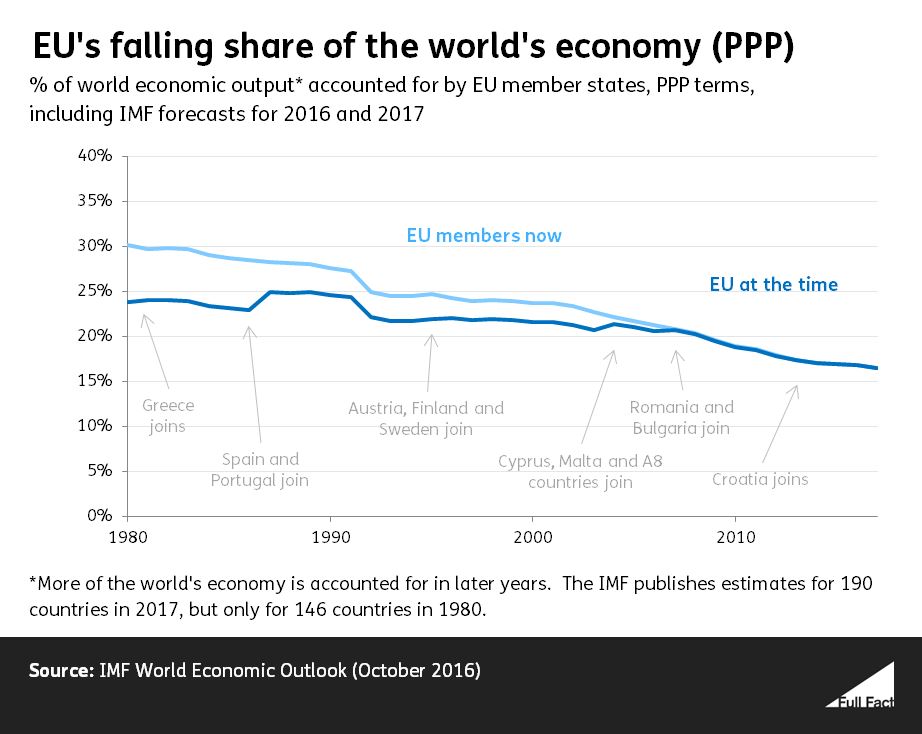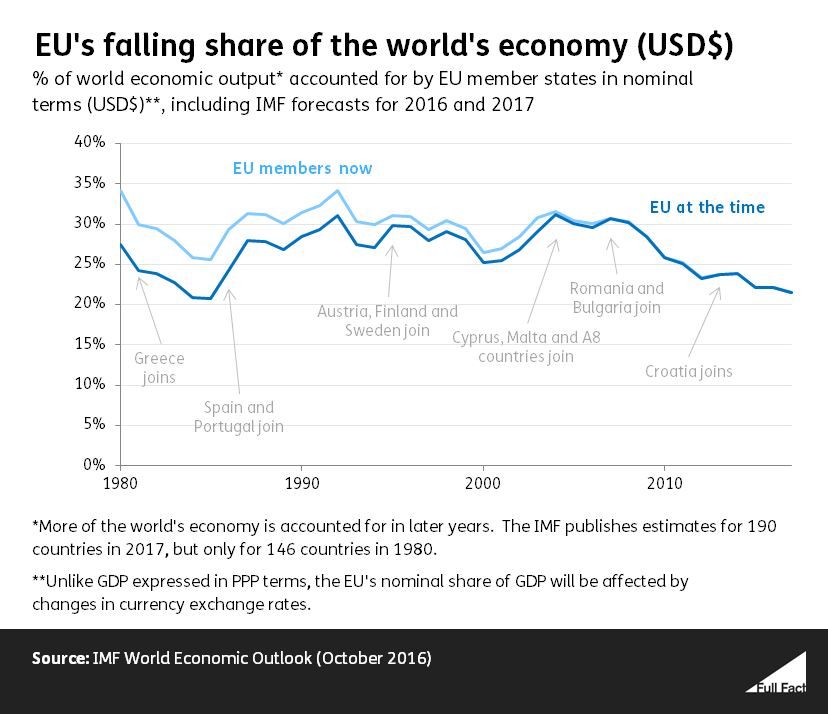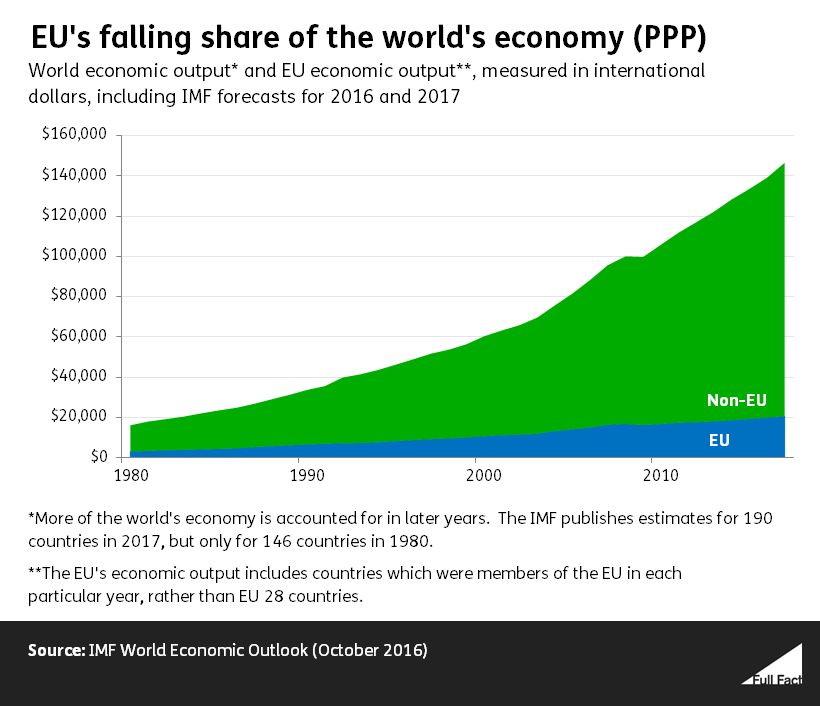What was claimed
The EU has shrunk as a percentage of the world economy.
Our verdict
That’s correct. The EU economy has grown in size, but the rest of the world economy has grown faster.
The EU has shrunk as a percentage of the world economy.
That’s correct. The EU economy has grown in size, but the rest of the world economy has grown faster.
"I think two things have really moved on since the referendum 40 years ago. The first is the economic picture. Europe has shrunk as a percentage of the world economy"
Daniel Hannan, BBC Radio 5 Live, 5 June 2015
When the UK joined the EU in 1973, the world economy looked very different to how it does now.
Among other things, the rest of the world economy has grown faster than the EU, particularly the developing world, so the EU makes up a smaller share of the world economy.
Honesty in public debate matters
You can help us take action – and get our regular free email
There are two alternative ways to measure the size of an economy.
One way is to look at the value of a country’s economic output (GDP), and see what it’s worth in US dollars.
Using market exchange rates to do the currency conversion keeps things relatively simple. But one problem is that they aren’t consistent over time, and can sometimes move up and down quite suddenly.
That means that changes in a country’s GDP at market exchange rates don’t always reflect what’s going on in the ‘real’ economy. Just because the UK sterling exchange rate fell suddenly on 24 June last year doesn’t mean that the UK’s economic output suddenly got smaller, even though it was worth less in US dollars. Likewise, Mexico’s ‘real’ economy didn’t suddenly get smaller when Donald Trump was elected US President, even though the value of the Mexican peso dropped dramatically.
Another problem is that prices vary in different countries. Market exchange rates tell you how much a dollar will buy you in a foreign currency, they don’t tell you how far the same money will go in that country if you wanted to buy something real with it, like a pint of milk.
So an alternative is to calculate GDP in terms of ‘Purchasing Power Parity’ (PPP).
This adjusts the figures to reflect different price levels around the world, and to account for how currency values have changed over time.
That solves the problems with the market exchange rates approach, but creates new ones too. One issue is that it involves many more assumptions and has the potential for errors.
Sometimes using a different measure makes a difference to your conclusion. For example, the UK economy has the fifth biggest nominal GDP in the world, but only the ninth biggest in PPP terms.
When measured in terms of Purchasing Power Parity, the EU has shrunk as a proportion of world GDP.

There’s also more year-on-year variation, because this measure of the world’s output is affected by changes in currency exchange rates.
 The rest of the world has grown faster than the EU
The rest of the world has grown faster than the EUThe EU economy hasn’t shrunk in size, but the rest of the world has grown faster. That’s why the EU makes up a smaller proportion of the total.

One problem with this kind of comparison is that we don’t have GDP figures for every country in the world stretching back to 1980. The data comes from the IMF’s World Economic Outlook report in October 2016. The report includes estimates for the GDP of 190 countries today, but only 146 countries in 1980. So not only was the rest of the world getting bigger, faster than the EU economy, more of it shows up in the IMF’s estimates.
And we don’t know how accurate we can take these estimates to be. GDP statistics aren’t something that you just can go out and find in the real world; they have to be constructed from administrative data, like tax records, or surveys of businesses.
Some countries still struggle to fund this kind of work properly. There are other cases, such as the prosecution of the former head of Greece’s statistical authority, which raised concerns on both sides about whether GDP figures are always safe from political influence.
Constructing GDP figures is arguably becoming difficult, and some people believe that the figures still understate the importance of the digital economy. For example, it’s now possible to access practically unlimited amounts of music through web players, for a monthly subscription that costs about the same as a single CD.
Update 13 February 2017
This article was updated to include both measures of GDP.
Full Fact fights for good, reliable information in the media, online, and in politics.
Bad information ruins lives. It promotes hate, damages people’s health, and hurts democracy. You deserve better.